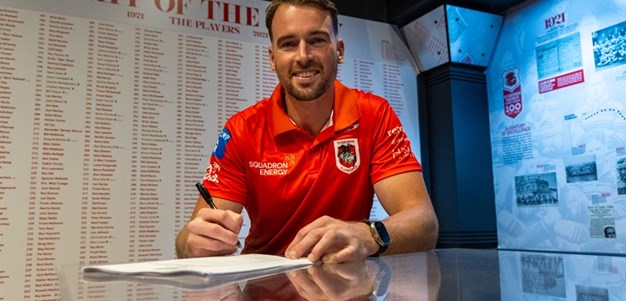
Born from a dark history, National Aboriginal and Torres Strait Islander Children's Day is now a celebration of strength and potential - qualities that rugby league is helping to foster on and off the field.
Held on August 4, the day is meaningful for several reasons, as explained by Australian Rugby League Indigenous Council deputy chair and proud Wiradjuri man Nathan Towney.
"August the 4th was historically used to celebrate the birthdays of Aboriginal and Torres Strait Islander children who were taken from their families," Towney told NRL.com.
"So they actually didn't know their birthdays. It's fairly significant. You don't ever want to lose that history so it's important to acknowledge that. But it's really evolved into a day where we're able to celebrate our young people in the community."
Towney, a former school principal who is currently Pro Vice-Chancellor Indigenous, Strategy and Leadership at the University of Newcastle, added that "it's often on the rugby league field that our young people can see the strength and potential".
Watson’s ‘Boots for Brighter Futures’ charity an outlet for Indigenous youth
According to the Aboriginal and Torres Strait Islander Children's Day website, "Aboriginal and Torres Strait Islander children are 2.5 times more likely to be developmentally vulnerable early in life than non-Indigenous children".
Those affected generally struggle academically, are more likely to leave school early and have poorer life outcomes.
"We know there's generational impact of [colonisation and] past policies and procedures. It's our young people that are often left with the brunt of that," Towney said.
"That [2.5 times] figure really does represent the generational impact of those past policies and processes. It's an unfair figure; it's a figure that we shouldn't have to be talking about because no young person should be starting life with a deficit model."
The NRL School to Work program, which assists Indigenous students with the transition to tertiary education or meaningful employment, has had more than 2000 graduates since 2012 and produced a 96 per cent HSC achievement rate last year.
Towney said the program, along with others promoted by the NRL, QRL and NSWRL, is helping unlock strength and potential.
"To have someone come in and take the blinkers off and show young people what is actually available and the possibilities out there I think is fantastic. It really gets them thinking in a different light and opens up the world to them," he said.
"The School to Work program is a perfect example of that, where our young people can work with a caseworker one-on-one and really identify what they want to do and get the support to get them there."
The theme of the 2020 Aboriginal and Torres Strait Islander Children's Day is We are the Elders of tomorrow, hear our voice.
"Elders are such an important part of our communities. They're very well respected and have a lot of the history and knowledge that needs to be passed down through generations," Towney said.
Indigenous stars raise their voice
"It's a really appropriate theme. Our young people are our Elders of tomorrow and it's really important that they're treated like that."
Towney is hopeful about the world that Aboriginal and Torres Strait Islander children are growing up in.
"The laws have now allowed us to exist, but we've never really had the privilege to be able to belong," he said.
"I think the belonging is starting to strengthen and our young people have access to language and a lot of other cultural activities that our generations before haven't had access to.
"Schools and educational institutions are starting to become places where our people actually belong. We don't just exist. I think that's the biggest change and I think it's the most exciting change.
Truth-telling at forefront of Indigenous Round
"Because we know that if people are happy to be in an educational institution they're more likely to achieve and succeed."
As was proven during NRL Indigenous Round, which Towney thought was among the best yet, rugby league is a powerful connector.
"From a government point of view and from a systemic point of view, we need big changes to structures and to systems," Towney said.
"And they can't be changed when people who are involved in those decisions don't have an understanding of why those structures need to change in the first place. The vehicle of the National Rugby League really starts to open up the conversation and exposes to those people the reasons why things need to change.
"I don't think we can underestimate the power of the Indigenous Round in the National Rugby League, it's a conversation starter and it helps educate people."


